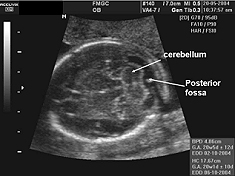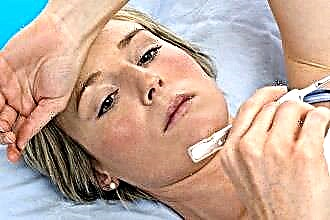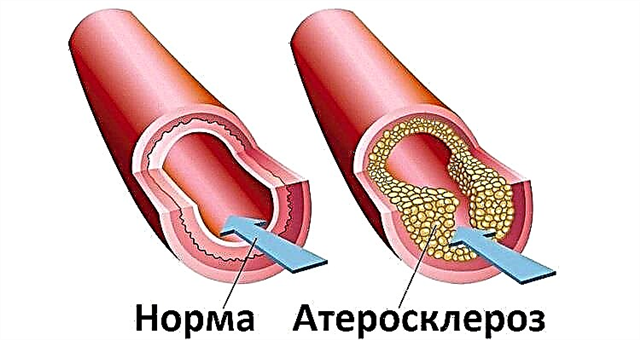A honey cough compress is an effective symptomatic remedy that eliminates inflammation and swelling in the mucous membranes of the ENT organs. Beekeeping products contain more than 100 useful components that have a beneficial effect on cellular metabolism and local immunity. Natural honey is a natural antibiotic with pronounced antimicrobial properties.
To stop dry and wet coughs, various honey compresses are used, which may include additional ingredients. Warming procedures activate the glands of the ciliated epithelium, thereby stimulating the separation of viscous sputum from the bronchi and airways. Thus, the evacuation of pathological secretions from the respiratory system is accelerated, which leads to an alleviation of the symptoms of a cold.
Biochemical composition of honey
 Honey is a product unique in its properties, which contains from 100 to 400 useful components. The beekeeping product has a pronounced wound healing, analgesic and antiphlogistic effect, which made it possible to use it for therapeutic purposes. The natural antibiotic contains the following components:
Honey is a product unique in its properties, which contains from 100 to 400 useful components. The beekeeping product has a pronounced wound healing, analgesic and antiphlogistic effect, which made it possible to use it for therapeutic purposes. The natural antibiotic contains the following components:
- vitamins;
- enzymes;
- amino acids;
- minerals;
- organic acids;
- flavonoids;
- lipids;
- minerals;
- phytoncides;
- proteins;
- alkaloids.
The product, rich in vitamins and minerals, is widely used in official and folk medicine for the treatment of ENT diseases. Honey has a low thermal conductivity, so it retains heat for a long time. This made it possible to use it as a warming component for the preparation of medical dressings, i.e. compresses. Honey compresses are used in the treatment of chronic tonsillitis, pharyngitis, bronchitis, flu, laryngitis, etc.
Therapeutic properties
Beekeeping products are effective antimicrobial agents that inhibit the activity of pathogenic gram-positive and gram-negative bacteria. As a result of enzymatic reactions, hydrogen peroxide is synthesized in honey, which destroys pathogens. At least 20 components have pronounced therapeutic properties, which include:
- phytoncides - inhibit the activity of protozoa, fungi, microbes and some viruses;
- monosaccharides - have an irritating effect, which helps to accelerate lymph flow and blood circulation in the lesions;
 organic acids - dissolve toxins in the body, restore the acid-base balance and prevent the development of pathogenic microbes;
organic acids - dissolve toxins in the body, restore the acid-base balance and prevent the development of pathogenic microbes;- flavonoids - have a pronounced antioxidant effect; strengthen the walls of blood vessels, which reduces their permeability and, accordingly, swelling in the tissues;
- vitamins - take part in biochemical processes, accelerate cellular metabolism and regeneration of mucous membranes affected by inflammation.
Heating honey to temperatures above 50 C leads to the destruction of most organic compounds and a decrease in the therapeutic activity of the product.
Medical dressings with honey for coughs can be used as local warming drugs to stop coughing not only in adults, but also in children. Natural antiseptic gently acts on tissues without causing burns and severe irritation. Replenishment of the lack of nutrients in the body helps to restore metabolic processes and local immunity.
Which honey should you choose?
The medicinal properties of the product are determined by its biochemical composition and the concentration of nutrients. Only those varieties of honey that contain the maximum amount of flavonoids, vitamins, organic acids and hydrogen peroxide will help to eliminate a cough. To eliminate streptococcal, staphylococcal and pneumococcal flora, it is more advisable to use the following types of product:
- acacia;
- clover;
- lemon balm;
- sage;
- alfalfa;
- heather.
It is not recommended to use honey for patients with a tendency to allergies, which is associated with a high degree of allergenicity of bee products.
The highest antibacterial activity is possessed by those varieties of honey that have a dark amber color - chestnut, sweet clover, etc. Polyflora varieties contribute to the destruction of gram-positive bacterial flora, so they can be used to treat infections caused by staphylococci, streptococci and diphtheria bacillus.
Types of compresses
 Compress is a medical multilayer bandage that has a warming, anti-inflammatory and wound healing effect on soft tissues. To relieve cough syndrome, warming dressings are used, which help to resorb infiltrates in the mucous membranes of the throat. Physiotherapy treatment of ENT diseases allows you to speed up the healing process, which is due to the activation of local and general immunity.
Compress is a medical multilayer bandage that has a warming, anti-inflammatory and wound healing effect on soft tissues. To relieve cough syndrome, warming dressings are used, which help to resorb infiltrates in the mucous membranes of the throat. Physiotherapy treatment of ENT diseases allows you to speed up the healing process, which is due to the activation of local and general immunity.
Local heating of the tissues of the chest, back and throat leads to an increase in the number of immunocompetent cells in the foci of inflammation. Neutrophils quickly destroy pathogens in the mucous membranes, which contributes to the detoxification of the body and the restoration of the secretory function of the ciliated epithelium. A decrease in the viscosity of mucus in the bronchi, trachea and airways stimulates the evacuation of pathological secretions from the respiratory system with forced expiration (cough).
A honey compress for a cough is applied for 10-15 days until the inflammatory processes in the ENT organs are completely eliminated. Warming up the tissues helps to eliminate swelling, inflammation and pain in the throat. To enhance the therapeutic effect of the physiotherapy, the following can be added to the composition of the drug:
- alcohol tinctures;
- Apple vinegar;
- mustard powder;
- lemon juice;
- yarrow juice;
- herbal decoctions.
Important! Bilateral compresses on the back and chest can only be applied to children over 4 years of age.
Composition of the compress
 Local therapy can be used only on the recommendation of a specialist at the stage of resolving catarrhal processes in the mucous membranes of the ENT organs. It is strongly not recommended to resort to physiotherapy for subfebrile and febrile fever. Warming up tissues can contribute to the spread of bacterial flora and the development of local complications.
Local therapy can be used only on the recommendation of a specialist at the stage of resolving catarrhal processes in the mucous membranes of the ENT organs. It is strongly not recommended to resort to physiotherapy for subfebrile and febrile fever. Warming up tissues can contribute to the spread of bacterial flora and the development of local complications.
Warming wet compresses should consist of three layers, namely:
- medicinal layer - cotton cloth or gauze soaked in a warming agent;
- insulating layer - polyethylene or waxed paper, which keeps heat inside the dressing;
- insulating layer - cotton wool or woolen scarf, which enhances the warming effect of the drug.
Important! During the period of an acute course of catarrhal processes in the ENT organs, warming medical dressings should not be used.
To prevent tissue overheating, it is more advisable to use wax paper as an insulating layer in pediatric therapy. Young children are prone to allergic reactions, which is associated with sensitization of the body. To prevent skin irritation, the chest is lubricated with baby cream or vegetable oil before the procedure.
Compress rules
The effectiveness of physiotherapy treatment depends on the correct application of a medical warming bandage. When warming up the chest, it is necessary to ensure that the region of the heart always remains open. Otherwise, the occurrence of adverse reactions is possible - arrhythmias, dizziness, weakness, etc.
Compressing technique:
- heat honey and additional components in a water bath;
- Place the warming agent on cheesecloth or cotton cans;
- Apply a compress to your chest, throat, or back
- cover the medicinal layer of the dressing with kraft paper;
- insulate the compress with a layer of cotton wool or a scarf.
The duration of therapy depends on the age of the patient and the composition of the warming agent. If the drug contains alcohol, the duration of the procedure should be no more than 2 hours. Otherwise, the occurrence of a burn on the skin is not excluded.
After removing the bandage, the patient needs to change into warm clothes to prevent hypothermia.
Recipes for kids
How to make a honey compress for a cough for a child? Due to the possible alcohol intoxication, it is undesirable to use alcohol compresses for the treatment of children under the age of 7-8 years. If the warming agent contains powdered mustard, radish or lemon juice, the skin must first be lubricated with vegetable oil. Thus, it is possible to mitigate the local irritating effect of the mentioned components.
What medications should I use to relieve a child's cough?
 with bronchitis: 2 tbsp. l. mix linden honey with 1 teaspoon of mustard powder and 5 ml of lemon juice;
with bronchitis: 2 tbsp. l. mix linden honey with 1 teaspoon of mustard powder and 5 ml of lemon juice;- with a dry cough: pour boiling water over the cabbage leaf, then grease it with melted honey and apply to the chest;
- wet cough: chop 1 raw potato in a blender and mix in 2 tbsp. acacia honey.
The effectiveness of therapy depends on the duration and frequency of the procedure. To speed up the coughing up of a viscous secretion, warming the chest with honey compresses should be done at least 3-4 times a day.
Recipes for adults
You can enhance the therapeutic effect of natural honey with alcoholic tinctures, apple cider vinegar, radish juice and mustard powder. Additional ingredients contribute to a more intense heating of tissues and, accordingly, accelerate blood microcirculation in the lesions. The restoration of normal trophism of the ciliated epithelium has a beneficial effect on the speed of regeneration processes and local immunity.
To eliminate dry and wet cough in adults, caused by septic inflammation of the mucous membranes of the upper respiratory tract, you can use the following types of drugs:
- mix 2 tbsp. melted honey with 5 ml of aloe juice and 50 ml of rubbing alcohol;
- in equal proportions, mix wheat flour with honey and mustard, adding 3 tbsp. vodka and the same amount of vegetable oil;
- dissolve 1 tbsp. apple cider vinegar in 3 tbsp. melted honey, then add 2 tbsp. mashed potatoes.
Important! Do not apply medical bandages to skin areas with age spots, boils and wounds.
It should be noted that physiotherapeutic treatment is aimed at eliminating the main manifestations of colds and therefore cannot guarantee complete recovery. It is possible to finally destroy the pathogenic flora in the foci of inflammation only by means of medications of pathogenetic action, which can only be prescribed by a competent specialist.

 organic acids - dissolve toxins in the body, restore the acid-base balance and prevent the development of pathogenic microbes;
organic acids - dissolve toxins in the body, restore the acid-base balance and prevent the development of pathogenic microbes; with bronchitis: 2 tbsp. l. mix linden honey with 1 teaspoon of mustard powder and 5 ml of lemon juice;
with bronchitis: 2 tbsp. l. mix linden honey with 1 teaspoon of mustard powder and 5 ml of lemon juice;

